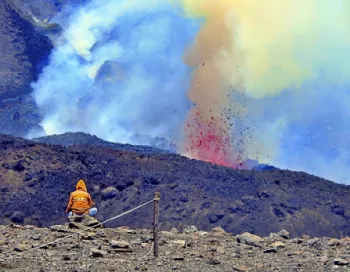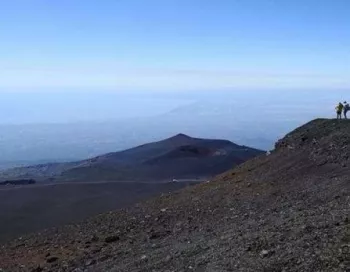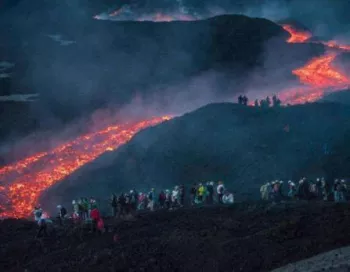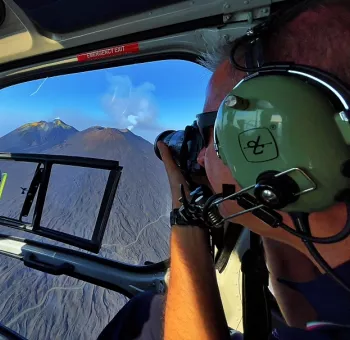Mount Etna is sliding towards the sea
Scientists have established that the whole structure is edging in the direction of the Mediterranean at a rate of 14mm per year. The Mount Etna is not an explosive Volcano but is sliding slowly towards the sea in an east-south-east direction and it could generate real problems. The scientists team says that the situation will need careful monitoring because it may lead to increased hazards at Etna in the future.
ETNA: THERE IS NO DANGER AT THE MOMENT
Dr John Murray, author of Bulletin of Volcanology and geologist on the Open University said that there is currently no cause for alarm, but it is something to keep an eye on, especially if there is an acceleration in this motion. He has spent almost half a century studying the Etna volcano. He has placed a network of high-precision GPS stations around the mountain to monitor its behaviour. This instrumentation is sensitive to changes of the volcano and with 11 years of data it is now obvious that the mountain is moving in an east-south-east direction, on a general track towards the town of Giarre, which is about 15km away. Essentially, Etna is sliding down a very gentle slope of 1-3 degrees. This is possible because it is sitting on an underlying platform of weak, pliable sediments.
Etna delivers an enormous quantity of vapour and other gases What could happen? A movement of 14mm/year means that is 1,4m over a hundred years, it will seem very small, and it is. But this kind of trend can suffer catastrophic failures on their leading flank as they drift downslope. Stresses can build up that lead eventually to devastating landslides. Certainly, there is absolutely no evidence that this is about to happen at the Etna. Local residents should not be alarmed. The thing to watch is if in 10 years' time the rate of movement has doubled, that would be a warning. From now there really is nothing to worry about.





